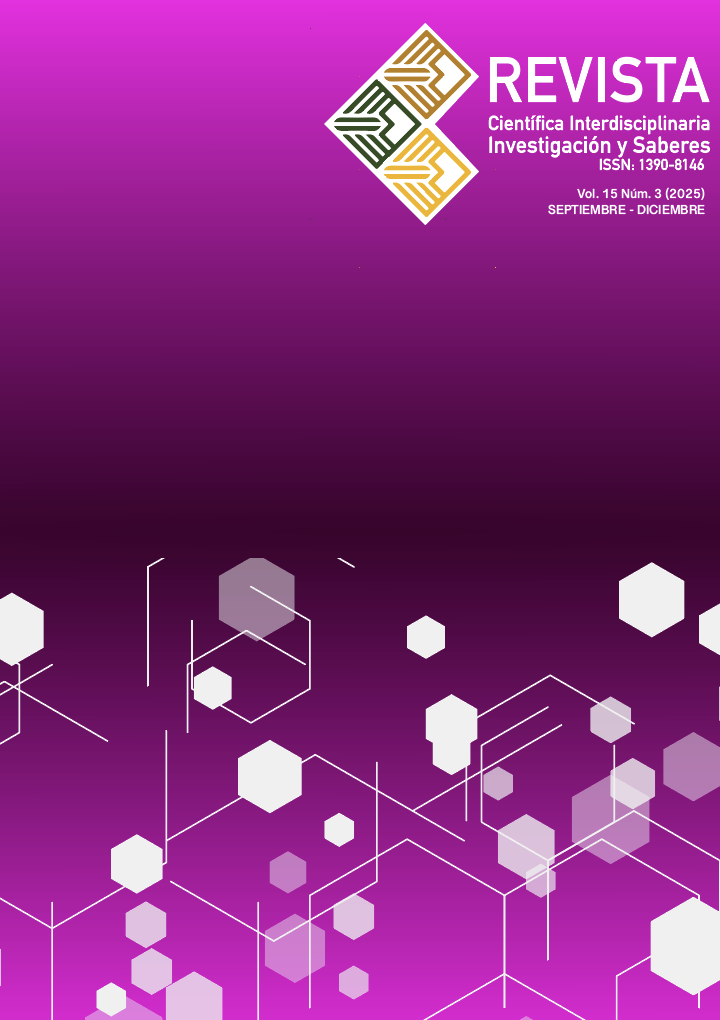The Impact of Artificial Intelligence on Learning: An Analysis Based on Teachers' Experiences
Main Article Content
Abstract
Artificial intelligence (AI) has begun to transform various fields, and education is no exception. This paper analyses the impact of AI on learning, focusing especially on the experiences of teachers in the basic general education system. The research focuses on assessing how teachers incorporate AI tools into their pedagogical practices, the barriers they face and perceptions about the potential of these technologies to improve teaching-learning processes. Through a mixed approach, quantitative and qualitative data are collected that allow exploring teachers' attitudes, required digital skills, use, and impact of AI in the classroom. The results show that AI offers benefits such as personalizing learning and optimizing pedagogical processes. This study highlights the importance of strengthening the technological training of educators and the need to create educational policies that encourage the use of AI. Finally, it is concluded that, for AI to be successfully integrated into education, a comprehensive approach is needed that includes ongoing training, institutional support, and technological improvement in education to expand the scope of AI use to students in basic general education and high school.
Article Details
Section

This work is licensed under a Creative Commons Attribution-NonCommercial-ShareAlike 4.0 International License.
La revista brinda acceso abierto inmediato a todo su contenido sobre el principio de que hacer que la investigación esté disponible de forma gratuita para el público para apoyar un mayor intercambio global del conocimiento.
De esta manera, el lector/a puede acceder a todos los contenidos de la revista desde el momento de la publicación sin coste ni obligación de suscripción.
La revista ienen licencia bajo el acuerdo de licencia internacional Attribution-NonCommercial-ShareAlike 4.0 International (CC BY-NC-SA 4.0). Los/as autores/as retienen los derechos de autor y se permite a terceros copiar, distribuir y hacer uso de los trabajos siempre que cumplan con los términos y condiciones establecidos por dicha licencia
- citar la autoría y la fuente original de su publicación (revista, editorial y URL de la obra).
- No se usen para fines comerciales.
- Si remezcla, transforma o crea a partir del material, deberá difundir sus contribuciones bajo la misma licencia que el original.
Puede encontrar más información al respecto en https://creativecommons.org/licenses/by-nc-sa/4.0/deed.es.
La Revista declina cualquier responsabilidad sobre posibles conflictos derivados de la autoría de los trabajos que se publican.
How to Cite
References
Brennan, K., & Resnick, M. (2012). New frameworks for studying and assessing the development of computational thinking. Proceedings of the 2012 Annual Meeting of the American Educational Research Association (AERA), Vancouver, Canada. https://web.media.mit.edu/~kbrennan/files/Brennan_Resnick_AERA2012_CT.pdf
Carbonaro, M., Szafron, D., Cutumisu, M., & Schaeffer, J. (2020). Teaching computer programming in elementary schools: Challenges and pedagogical implications. Computers in Human Behavior, 112, 106467. https://doi.org/10.1016/j.chb.2020.106467
Del Olmo Muñoz, J., Casado Muñoz, R., Sánchez Mendiola, M., & Domínguez-Garrido, M. C. (2025). Evaluación del pensamiento computacional en primaria: un estudio de caso con rúbricas. Revista Electrónica de Investigación Educativa, 27(1), 1–20. https://doi.org/10.24320/redie.2025.27.e01
Gutiérrez-Aguilar, T. (2024). Pensamiento computacional en la educación básica: estrategias lúdicas y desarrollo cognitivo. Revista Horizontes, 8(30), 78–95. https://doi.org/10.33996/horizontes.v8i30.1278
Guzmán, D., & Páez, A. (2021). Experiencias de pensamiento computacional en zonas rurales de América Latina: una revisión crítica. Revista Iberoamericana de Educación Digital, 6(2), 45–62. https://doi.org/10.35659/rived.2021.6.2.45
Lye, S. Y., & Koh, J. H. L. (2014). Review on teaching and learning of computational thinking through programming: What is next for K-12?. Computers in Human Behavior, 41, 51–61. https://doi.org/10.1016/j.chb.2014.09.012
Martínez, L. (2022). La enseñanza del pensamiento computacional desde la educación inicial: desafíos y propuestas. Revista Colombiana de Educación, 85(2), 140–162. https://doi.org/10.17227/rce.num85-17880
Paraskevopoulou-Kollia, E. A., & Fragkou, P. (2025). Teaching computational thinking in early childhood education: A systematic review. Education Sciences, 15(1), 56. https://doi.org/10.3390/educsci15010056
Perea, A. (2023). Implementación del pensamiento computacional en primaria mediante programación con bloques. Revista EDUCARE, 27(3), 201–219. https://doi.org/10.15359/ree.27-3.12345
Quiroz-Vallejo, L., Guerrero-Rodríguez, J., & López-Cabrera, E. (2021). Pensamiento computacional en niños y jóvenes: una revisión sistemática de experiencias en América Latina. Revista Mexicana de Investigación Educativa, 26(90), 1123–1145. https://www.comie.org.mx/revista/v1/index.php/educacion/article/view/1290
Román-González, M., Pérez-González, J.-C., & Jiménez-Fernández, C. (2017). Which cognitive abilities underlie computational thinking? Criterion validity of the Computational Thinking Test. Computers in Human Behavior, 72, 678–691. https://doi.org/10.1016/j.chb.2016.08.047
Silva, G. R., Araujo, J. A., & Andrade, J. M. (2021). Aplicaciones móviles para el desarrollo del pensamiento computacional en primaria. Revista Iberoamericana de Tecnología Educativa, 20(2), 55–70. https://doi.org/10.17398/1695-288X.20.2.55
Tang, X., Yin, Y., Lin, Q., Hadad, R., & Zhai, X. (2020). Assessing computational thinking: A systematic review of empirical studies. Computers & Education, 148, 103798. https://doi.org/10.1016/j.compedu.2019.103798
UNESCO. (2023). Computational thinking and programming in the curriculum: Policy and practice in Latin America. https://unesdoc.unesco.org/ark:/48223/pf0000389654
Voogt, J., Fisser, P., Good, J., Mishra, P., & Yadav, A. (2015). Computational thinking in compulsory education: Towards an agenda for research and practice. Education and Information Technologies, 20(4), 715–728. https://doi.org/10.1007/s10639-015-9412-6
Wing, J. M. (2006). Computational thinking. Communications of the ACM, 49(3), 33–35. https://doi.org/10.1145/1118178.1118215

